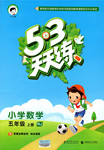题目内容
In England recently three foreign gentlemen came to a bus stop and waited . About five minutes later, the bus they wanted came along. They were just going to get on when suddenly there was a loud noise behind them. People rushed onto the bus and tried to push them out of the way . Someone shouted at them. The bus conductor came rushing down the stairs to see what all the trouble was about. The three foreigners seem all at sea and looked embarrassed (窘迫的 . No one had told them about the British custom (习惯)of lining up for a bus that the first person who arrives at the bus stop is the first person to get on the bus .
Learning the language of a country isn't enough. If you want to have a pleasant visit, find out as much as possible about the manners and customs of your host country. You will probably be surprised just how different they can be from your own. A visitor to India would do well to remember that people there consider it impolite to use the left hand for passing food at table. The left hand is supposed to be used for washing yourself. Also in India, you might see a man shaking his head at another to show that he doesn't agree. But in many parts of India a shake of the head means agreement. Nodding (点头) your head when you are given a drink in Bulgaria will most probably leave you thirsty .
In that country, you shake your head to mean 'yes'— a nod means 'no' . At a meal in countries on the Arabic Peninsula, you will find that your glass is repeated refilled as soon as you drink up . If you think that you have had enough , you should take the cup or glasses in your hand and give it a little shake from side to side or place your hand over the top.
In Europe it quite usual to cross your legs when you are sitting talking to someone even at an important meeting. Doing this in Thailand, however, could bring about trouble . Also, you should try to avoid (避免)touching the head of an adult (成人) ——it's just not done in Thailand .
1.The British people tried to push the three gentlemen out of the way, because the gentlemen______
A. were foreigners B. didn't have tickets
C. made a loud noise D. didn't line up for the bus
2.According to the article, if you want to have a pleasant journey in a foreign country, you should ____
A. learn the language of the country
B. understand the manners and customs of the country
C. have enough time and money
D. make friends with the people there
3.In India it is considered impolite ___________.
A. to use the right hand for passing food at table.
B. to pass food with the left hand.
C. to eat food with your hands.
D. to help yourself at table.
4.To cross one's legs at an important meeting in Europe is _______.
A. a common (平常的) habit B. an important manner
C. a serious (严重的) trouble D. a bad manner
1.D 2.B 3.B 4.A 【解析】试题这篇文章讲述的是如果你要去外国游行的话,最好先了解一个这个国家的风俗习惯,在不同的国家相同的习惯可能有着不同的意义。 1. 2. 3. 4. 53天天练系列答案
53天天练系列答案
